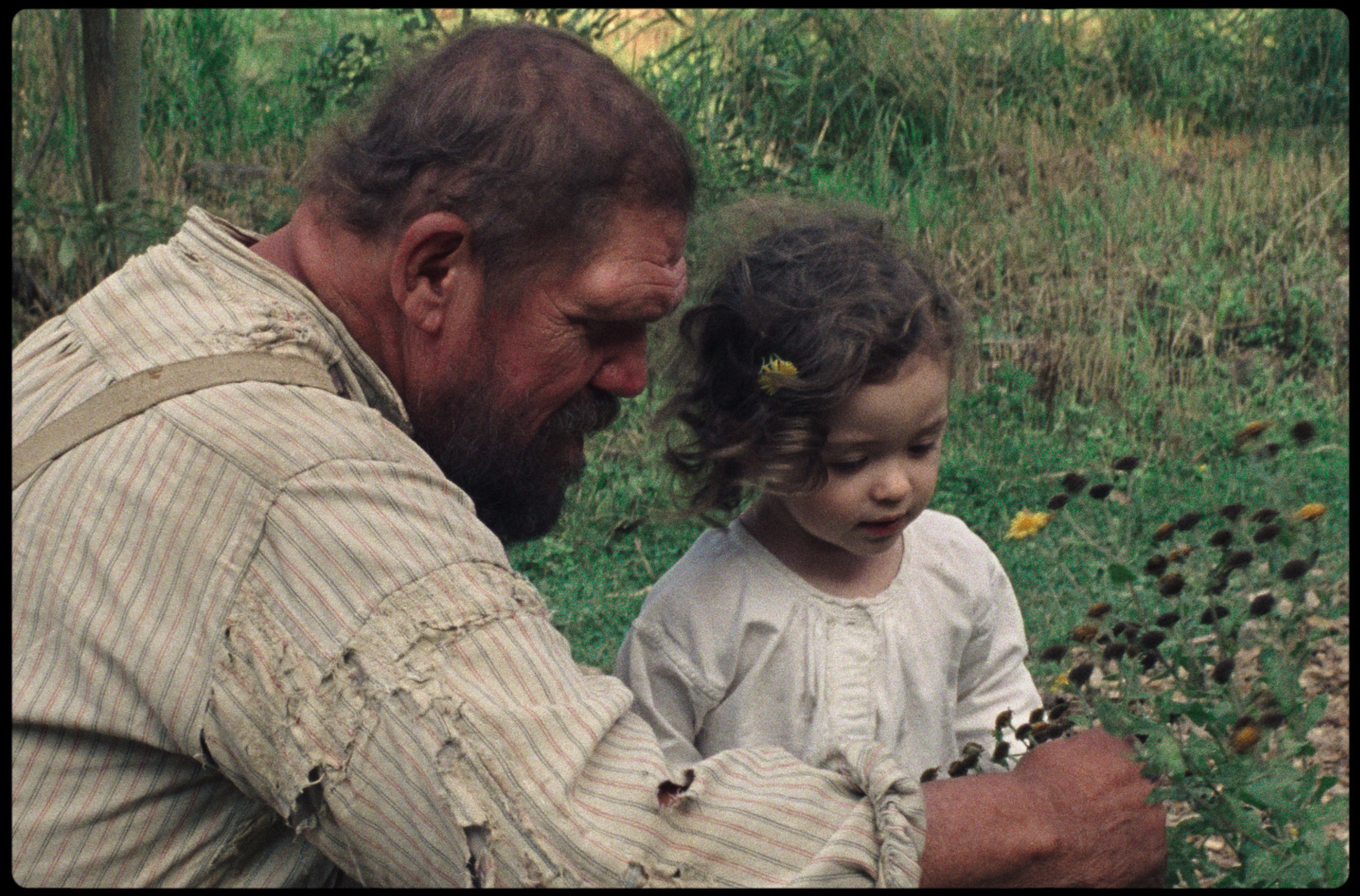Anyone who’s seen Pietro Marcello’s Martin Eden will likely recognize the director’s fingerprints all over Scarlet. There’s the same haunting collage of colorized archival documentary footage and fictional scenes here, the same fascination with physical labor and historical moments of transition, the same loose approach to literary adaptation. Scarlet’s story is drawn from a 1923 Russian adventure novel but the action is transposed to post-WW1 rural France, where soldier Raphaël (Raphaël Thiéry) returns from the war to discover his wife has died and left him with a daughter, Juliette (Juliette Jouan). The local townsfolk reject the duo, but they manage to keep their head above water thanks to a kindly landlady with a storybook belief in magic and Raphael’s Geppetto-like skills at whittling beautiful toys from blank blocks of wood.
The fairy tale touches don’t stop there: the color grading and bucolic setting give the movie the look and texture of a fable, while Juliette is enraptured by a prophecy — given to her by a witchy forest woman — that tells her she’ll one day be swept away by scarlet sails in the sky. It’s a charming, if airy, yarn, but the craftsmanship in front of and behind the camera makes Scarlet a gorgeous escape.
Synopsis
A French widower and WWI veteran returns home after the war to raise his newborn daughter.
Storyline
A woodworker ekes out a humble existence in post-WW1 France as his daughter comes of age and awaits the realization of a magical prophecy.
TLDR
Unexpectedly, it’s the father of the damsel that is most interesting in this fairy tale.
What stands out
Amidst all of Scarlet’s etherealness, Thiéry — who is primarily a visual artist in real life — gives a deeply grounding performance as Raphaël. Not only does his appearance recall the turn-of-the-century working class generations we glimpse in the film’s period documentary excerpts — his is the kind of face you just don’t seem to see anymore — but his fine woodworking skills also hark back to an age of artisans. The grittiest layer of this fairy tale-esque movie is the one that charts the end of that era and the coming of a new electric age, and it’s the authentic air that Thiéry imbues the film with that makes this element feel so tragic.







